
United Nations Security Council resolution 864, adopted unanimously on 15 September 1993, after reaffirming resolutions 696 (1991), 747 (1992), 785 (1992), 793 (1992), 804 (1993), 811 (1993), 823 (1993), 834 (1993) and 851 (1993), the Council noted the continuing situation in Angola and went on to condemn and place international sanctions on UNITA.

United Nations Security Council resolution 1237, adopted unanimously on 7 May 1999, after reaffirming Resolution 696 (1991) and all subsequent resolutions on Angola, particularly resolutions 864 (1993), 1127 (1997), 1173 (1998) and 1229 (1999), the council established expert panels to investigate violations of measures imposed against UNITA.

United Nations Security Council resolution 922, adopted unanimously on 31 May 1994, after reaffirming Resolution 696 (1991) and all subsequent resolutions on Angola, the council discussed the peace process during the civil war and extended the mandate of the United Nations Angola Verification Mission II until 30 June 1994.
United Nations Security Council resolution 932, adopted unanimously on 30 June 1994, after reaffirming Resolution 696 (1991) and all subsequent resolutions on Angola, the council discussed the situation during the civil war and extended the mandate of the United Nations Angola Verification Mission II until 30 September 1994.

United Nations Security Council resolution 976, adopted unanimously on 8 February 1995, after reaffirming resolutions 696 (1991) and all subsequent resolutions on Angola, the Council authorised the establishment of a new peacekeeping mission in the country, the United Nations Angola Verification Mission III with an initial mandate ending on 8 August 1995.

United Nations Security Council resolution 1098, adopted unanimously on 27 February 1997, after reaffirming Resolution 696 (1991) and all subsequent resolutions on Angola, the Council extended the mandate of the United Nations Angola Verification Mission III until 31 March 1997.

United Nations Security Council resolution 1102, adopted unanimously on 31 March 1997, after reaffirming Resolution 696 (1991) and all subsequent resolutions on Angola, the Council extended the mandate of the United Nations Angola Verification Mission III until 16 April 1997.
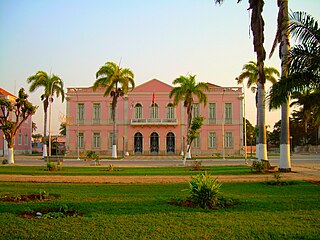
United Nations Security Council resolution 1106, adopted unanimously on 16 April 1997, after reaffirming Resolution 696 (1991) and all subsequent resolutions on Angola, the Council welcomed the establishment of the Government of Unity and National Reconciliation (GURN) and extended the mandate of the United Nations Angola Verification Mission III until 30 June 1997.
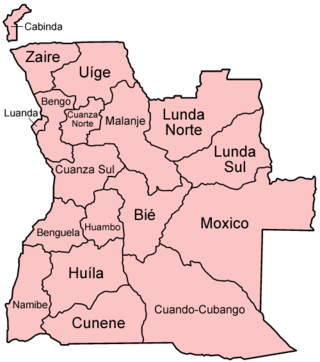
United Nations Security Council resolution 1118, adopted unanimously on 30 June 1997, after reaffirming Resolution 696 (1991) and all subsequent resolutions on Angola, the council established the United Nations Observer Mission in Angola (MONUA) to supersede the United Nations Angola Verification Mission III.

United Nations Security Council resolution 1127, adopted unanimously on 28 August 1997, after reaffirming Resolution 696 (1991) and all subsequent resolutions on Angola, the council, acting under Chapter VII of the United Nations Charter, imposed sanctions on UNITA following the lack of compliance in implementing peace agreements after the civil war.
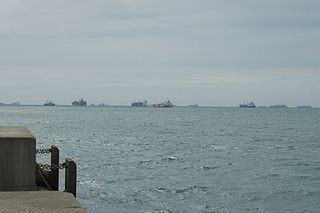
United Nations Security Council resolution 1135, adopted unanimously on 29 October 1997, after reaffirming Resolution 696 (1991) and all subsequent resolutions on Angola, the Council extended the mandate of the United Nations Observer Mission in Angola (MONUA) until 30 January 1998 and urged UNITA to comply with previous resolutions, particularly as sanctions were due to come into effect.

United Nations Security Council resolution 1149, adopted unanimously on 27 January 1998, after reaffirming Resolution 696 (1991) and all subsequent resolutions on Angola, the Council extended the mandate of the United Nations Observer Mission in Angola (MONUA) until 30 April 1998.

United Nations Security Council resolution 1157, adopted unanimously on 20 March 1998, after reaffirming Resolution 696 (1991) and all subsequent resolutions on Angola, the Council increased the number of civilian police monitors by up to 83 personnel to assist both the Angolan government and UNITA resolve issues in the peace process and reduced the military component of the United Nations Observer Mission in Angola (MONUA).
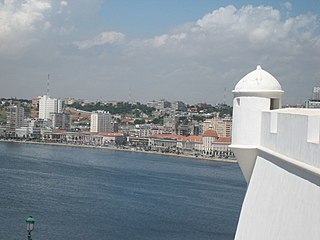
United Nations Security Council resolution 1164, adopted unanimously on 29 April 1998, after reaffirming Resolution 696 (1991) and all subsequent resolutions on Angola, the Council extended the mandate of the United Nations Observer Mission in Angola (MONUA).
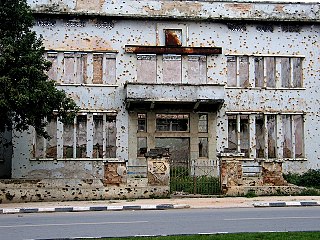
United Nations Security Council resolution 1180, adopted unanimously on 29 June 1998, after reaffirming Resolution 696 (1991) and all subsequent resolutions on Angola, particularly resolutions 1173 (1998) and 1176 (1998), the Council extended the mandate of the United Nations Observer Mission in Angola (MONUA) until 15 August 1998.

United Nations Security Council resolution 1190, adopted unanimously on 13 August 1998, after reaffirming Resolution 696 (1991) and all subsequent resolutions on Angola, particularly resolutions 864 (1993), 1127 (1997) and 1173 (1998), the Council extended the mandate of the United Nations Observer Mission in Angola (MONUA) until 15 September 1998.

United Nations Security Council resolution 1195, adopted unanimously on 15 September 1998, after reaffirming Resolution 696 (1991) and all subsequent resolutions on Angola, the Council extended the mandate of the United Nations Observer Mission in Angola (MONUA) for a month until 15 October 1998.
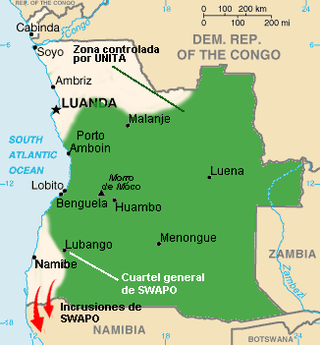
United Nations Security Council resolution 1213, adopted unanimously on 3 December 1998, after reaffirming Resolution 696 (1991) and all subsequent resolutions on Angola, including resolutions 846 (1993), 1127 (1997) and 1173 (1998), the Council extended the mandate of the United Nations Observer Mission in Angola (MONUA) for a final time until 26 February 1999.

United Nations Security Council resolution 1219, adopted unanimously on 31 December 1998, after reaffirming Resolution 696 (1991) and all subsequent resolutions on Angola, particularly resolutions 1202 (1998) and 1213 (1998), the Council condemned the absence of actions to determine the fate of crew and passengers aboard United Nations Flight 806 which crashed on 26 December 1998.

United Nations Security Council resolution 1229, adopted unanimously on 26 February 1999, after reaffirming Resolution 696 (1991) and all subsequent resolutions on Angola, particularly resolutions 864 (1993), 1127 (1997), 1173 (1998), 1219 (1998) and 1221 (1999), the council dissolved the United Nations Observer Mission in Angola (MONUA) though its human rights component would remain.















